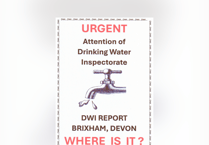THERE is a good deal of research to support the idea that getting into the habit of writing a gratitude list is good for our mental health, writes psychotherapist Jody Merelle.
You are not only reminding yourself of all the reasons you have to be happy and grateful, but you are also re-training your brain to look for the positive in everyday situations rather than doing its natural thing of honing in on the negative.
Just like any new habit – once you have got used to doing it, it starts to become an automatic way of thinking. This is when the real benefit kicks in. Instead of your mind being full to the brim of all the problems it is having to contend with – you have also made space for other, much more palatable stuff. You are taking the sting out of the not so pleasant things and reminding yourself that not everything in your day/week/year has been a complete disaster.
Let’s be realistic though. It is a rare person who spends their time gazing around at the world feeling non-stop gratitude. Most of the time we are concentrating on getting through the day and fulfilling all our obligations the best we can. Not infrequently a curved ball can be thrown at us which can easily make any feelings of gratitude go out of the window all together.
What I have learnt though – is that it is precisely at these really challenging times in life when a gratitude list can be the best medicine ever. The times when life really punches you in the gut are the times when it is most worth thinking about all there is to be grateful for. And it is worth doing even if you have to force yourself.
For most of us, when something bad or unpleasant happens, for a while at least it takes over our conscious thoughts. Bad news can sometimes feel overwhelming and it can be difficult to concentrate on anything else. What can then follow is a negative spiral where we are already upset about whatever it is, but we proceed to also think about all the negative impacts the event has had. This in turn makes us worry more, sometimes to the point where we are literally losing sleep over it. Lying awake, we think even more about the negative event and so it goes on.
A helpful tactic to try and stop this negative spiral from getting out of hand is to consciously decide to seek out all there is is to be grateful for – even in the midst of the difficult situation. In which ways could the situation be even worse? (but isn’t). Could it be that some good will come out of the situation, even though it wasn’t something you would have chosen? What other things are there in your life that you are still pleased about despite the problem you are facing right now?
What things have gone right this week in addition to anything that may have gone wrong? None of this is about ignoring whatever challenge you might be facing – it is about bringing some balance and perspective back to your conscious thoughts.
It is worth reminding yourself that the problem is only one small element of a much greater whole. This way problems can feel less all-consuming as well as easier to deal with.
Life can feel both complicated and unjust at times. But even in the midst of the hardest situation you will still find many reasons to be grateful if you remember to look for them.
A well-timed gratitude list could be the best medicine to help you hold your head up high and give you both comfort and encouragement just when you are needing it the most.



-Beaver-Trust.jpeg?width=209&height=140&crop=209:145,smart&quality=75)

Comments
This article has no comments yet. Be the first to leave a comment.